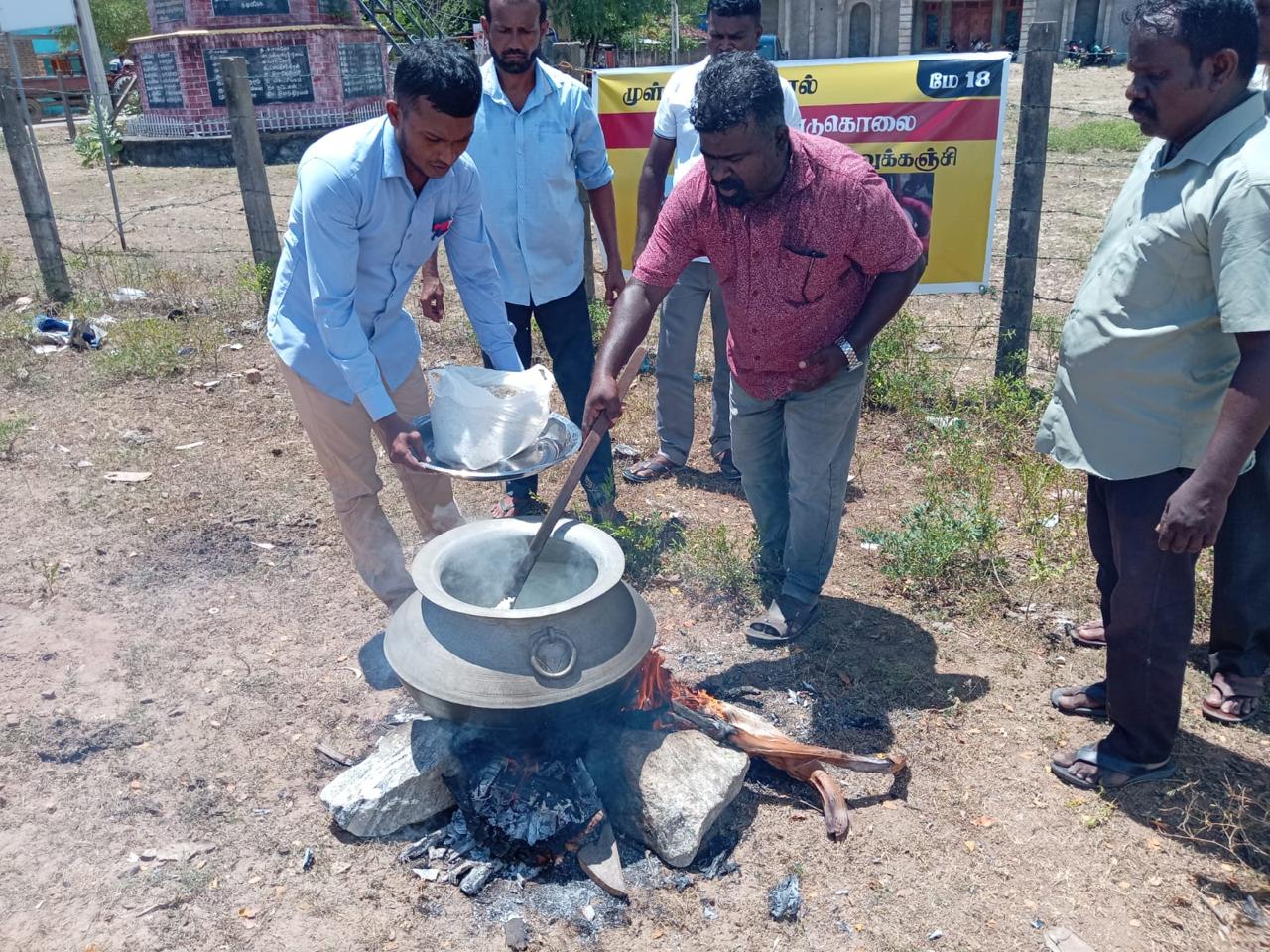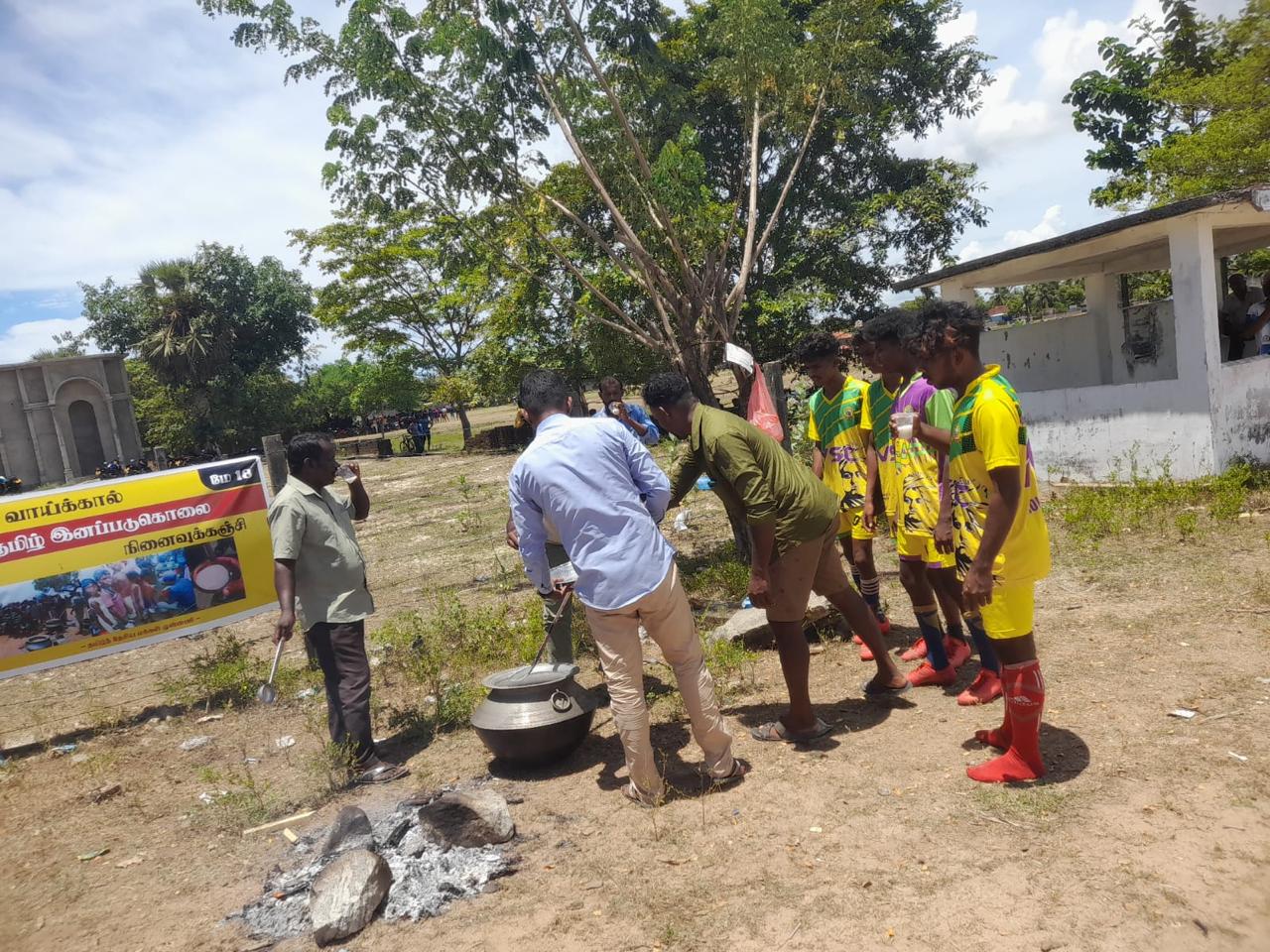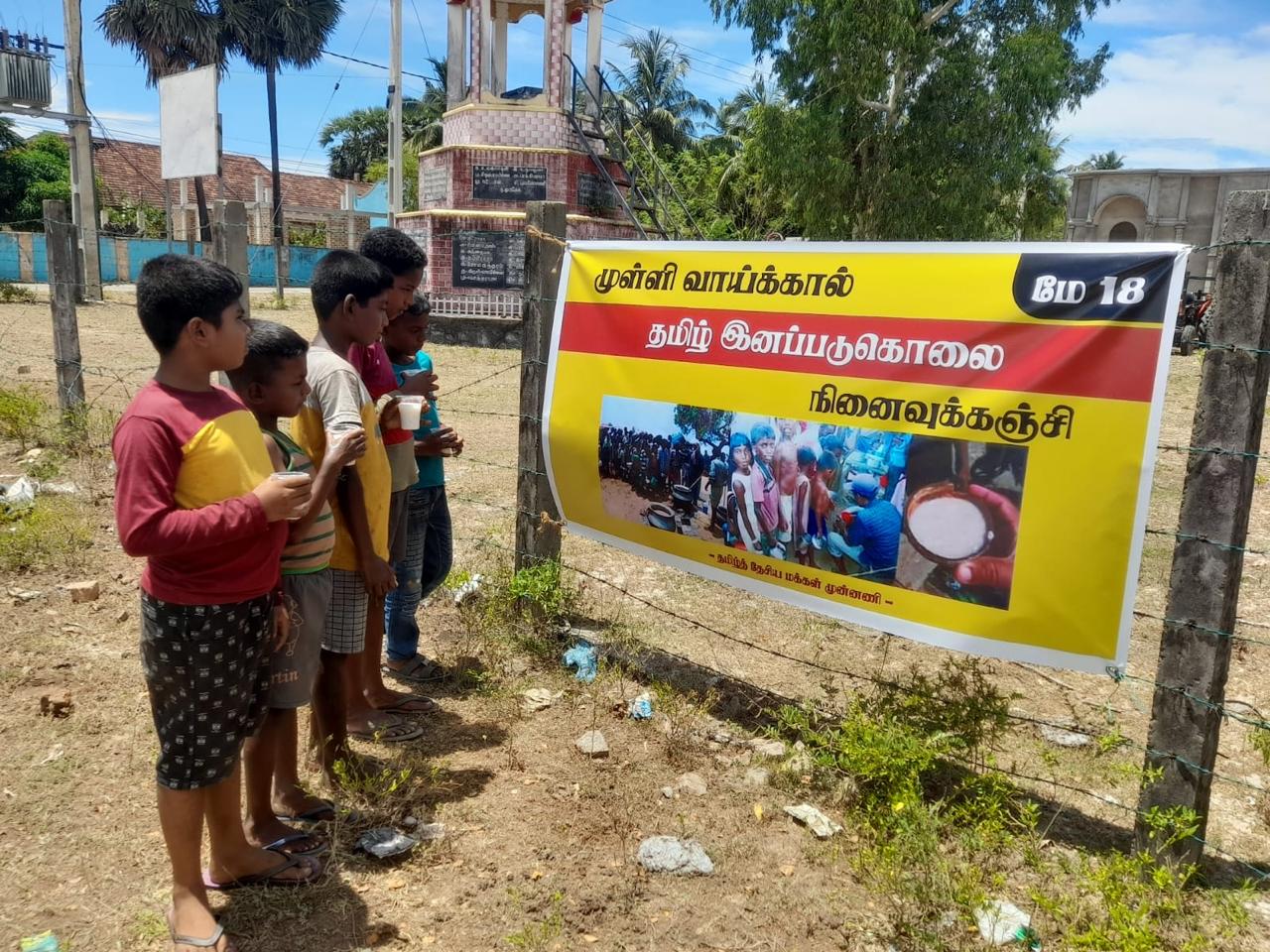
The Tamil National People's Front (TNPF) served Mullivaikkal Kanji in Batticaloa to commemorate 15 years since the Tamil genocide in which as many as 169,796 Tamils were killed by Sri Lanka's military offensive.
Kanji - a porridge of rice and water - was the only food available to Tamils trapped in the Sri Lankan government-declared 'No Fire Zones' as food, medicines, and other necessities were heavily restricted from entering the Vanni during the final phase of the armed conflict.

The Sri Lankan government denied the delivery of food into conflict zones, to use starvation as a weapon of war. Even as Tamils stood in long queues to get a bowl of kanji, the Sri Lankan military continued their daily bombardment, slaughtering many.
Read more here: 15 years today - More than 3,200 killed in one night.

The kanji was served by a memorial dedicated to the 87 victims of the Kokkadichcholai massacre. On January 27, 1987, Sri Lanka's Special Task Force (STF) and army officers raided a prawn factory in the village, shooting dead the workers, which including seven boys aged between 12 to 14. The killings have since been dubbed the ‘Prawn Farm Massacre’.
The Kokkadichcholai massacre is one of many massacres perperated by Sri Lanka against the Tamil people, before the genocide at Mullivaikkal in 2009. Despite the countless atrocities by Sri Lanka, there has been no justice and accountability for their crimes.
